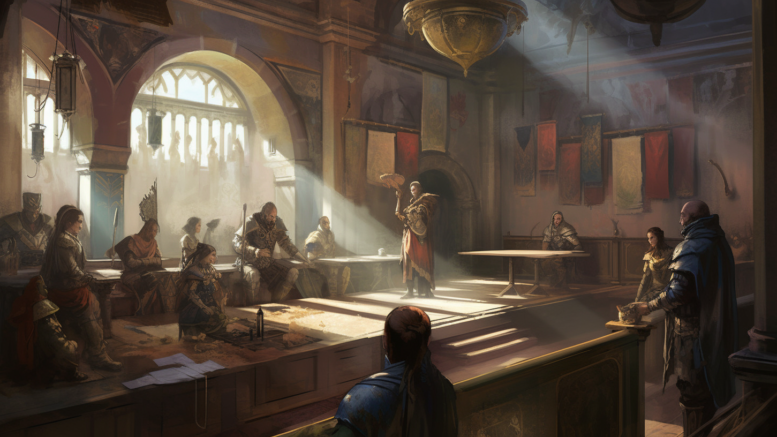One of the most exciting aspects of a fantasy game is the opportunity for players to role-play and make decisions that can impact the game world. However, sometimes the actions of the characters can lead to legal trouble, and a trial may be necessary to determine their guilt or innocence. In this blog post, we’ll explore how to run a trial in these two popular role-playing games, including various situations that may arise during the trial.
Preparing for the Trial
Before the trial begins, the GM should establish the setting and legal system of the game world. This can include the structure of the court system, the laws that the characters are being accused of breaking, and the penalties for those crimes. It’s also important to determine who will be presiding over the trial, such as a judge or a council of elders.
Once these details are established, the GM can work with the players to determine how they will defend themselves. This can include gathering evidence, calling witnesses, and preparing opening and closing statements. It’s important to ensure that the players have enough information to build a strong defense, but also that they understand that the outcome of the trial will be based on the evidence presented.
Handling Witness Testimony
One of the most important parts of a trial is witness testimony. Players should be given the opportunity to cross-examine witnesses to try and poke holes in their stories. It’s up to the GM to determine the veracity of each witness’s testimony, and to decide if any witnesses are withholding information.
For example, in a trial for theft, a witness may claim to have seen the defendant steal the item in question. However, upon cross-examination, the players may discover that the witness was actually paid off by the accuser to provide false testimony. Alternatively, the witness may have seen someone who looked like the defendant, but wasn’t actually him.
Presenting Evidence
In addition to witness testimony, players may need to present physical evidence to support their defense. This can include items found at the scene of the crime, or documentation that proves the defendant’s innocence.
For example, in a trial for murder, the players may have discovered a weapon that doesn’t match the one used to commit the crime. This could be presented as evidence to cast doubt on the prosecution’s case. Alternatively, the players may have found an alibi witness who can testify that the defendant was somewhere else at the time of the crime.
Deliberation and Verdict
After all evidence has been presented and all witnesses have been cross-examined, it’s time for the judge or council to deliberate and render a verdict. The GM should determine the criteria for a guilty or not guilty verdict based on the legal system of the game world.
If the players are found guilty, the GM should determine the appropriate punishment, which can range from fines and community service to imprisonment or banishment. If the players are found not guilty, they should be cleared of all charges and free to continue their adventures.
Conclusion
Running a trial in a fantasy game can add an exciting element to the role-playing experience. By preparing the setting and legal system, handling witness testimony and evidence, and rendering a verdict, the GM can create a compelling and immersive trial scenario that engages the players’ critical thinking skills and problem-solving abilities. Whether the players are defending themselves against false accusations or seeking justice for a crime committed against them, a trial can be a thrilling and memorable experience in a fantasy game.

Be the first to comment on "Defend or Prosecute: How to Run a Compelling Trial in Your Fantasy Game"